Octopath Traveler 2 developers talk new mechanics, starting characters, and the importance of music
Making a new game based on a new game that feels like old games is not exactly simple
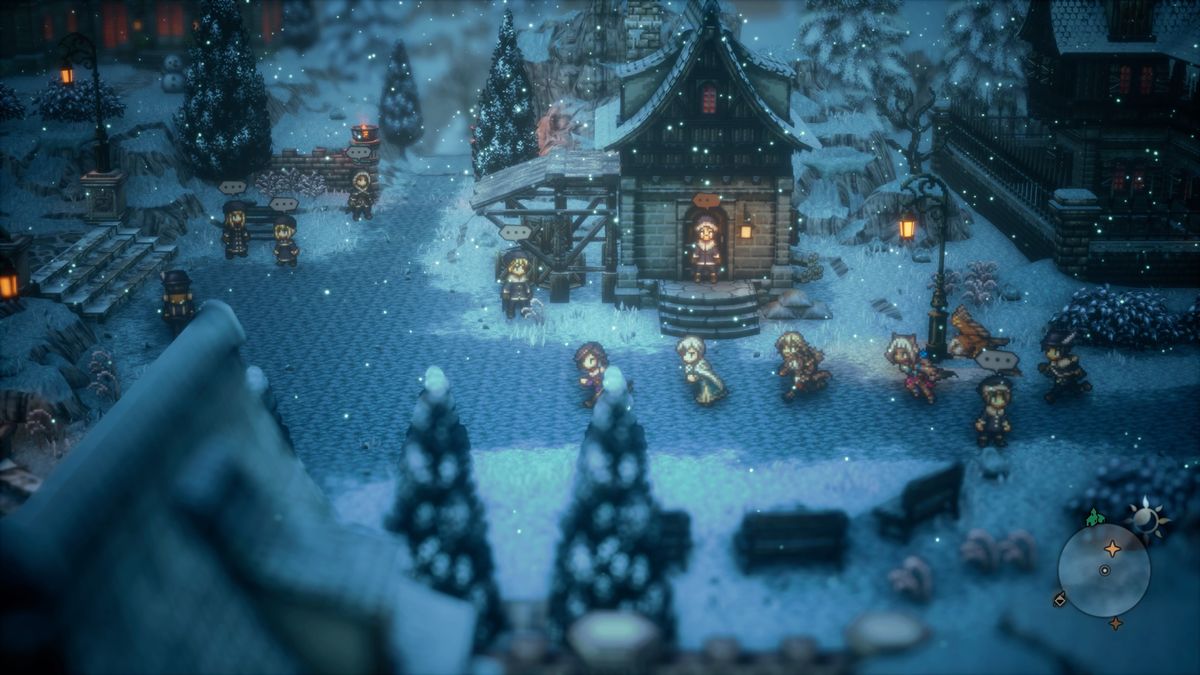
When making a sequel to a game that's so closely bound to the nostalgia people feel for the iconic JRPGs of the '90s, what you decide to update and change is as important as the stuff you leave alone. Octopath Traveler, itself a love letter to role-playing games from decades ago, made choices like this when deciding what to bring forward from its predecessors, but the recently released sequel Octopath Traveler 2 had the unenviable task of doing that while also getting compared to its own franchise-setting original, as our own Octopath Traveler 2 review noted. No pressure, right?
To better understand how the developers of Octopath Traveler 2 came to make these decisions, 12DOVE recently had the opportunity to interview the game's director, Keisuke Miyauchi, its producer, Masashi Takahashi, and its composer, Yasunori Nishiki, with answers in Japanese translated into English via email.
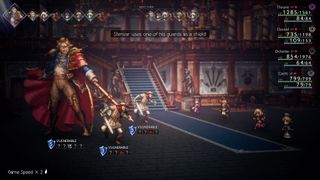
12DOVE: Compared to the original, the jobs are the same across all eight characters. How have the job and sub-job abilities changed to keep combat from feeling too familiar?
Keisuke Miyauchi, Director: First, we redesigned the skills and abilities so that those who played the previous game would be able to have a fresh battle experience. Then, the skills for each job were set up to match the qualities of the main characters and different geographical regions. For example, in the case of the Warrior, the "blade/mighty" style in the previous work was replaced by a focus on "East Asian skills/attacks" in this title, and the Scholar doesn't just specialize in magic, but also has a palpable depth of knowledge. By doing so, the gameplay experience naturally diverged from what the job proclivities offered in the previous installment.
Speaking of combat, how did the new Latent Power abilities come about? Why did you feel the need to add this change to the combat?
The "Latent Powers" are an element that we added to create a more dramatic battle experience. The battles in this series are fought by mastering the use of "Breaks" and "Boosts," but the drawback there is that it can become monotonous as players get used to it. As such, we included an element called "Latent Power" which is relatively random in terms of when it can be used. We hope that this will create different dramatic turns for each player, for example, in the same boss battle, you may be able to get out of a tight spot through the use of "Throné's Latent Power," or you may be able to turn the tables just in time because you filled the gauge for "Ochette's Latent Power."
One of the biggest criticisms of the original was that the eight character stories rarely intertwined. How have you taken that feedback on board to make the titular eight paths feel more meaningfully connected?
Sign up to the 12DOVE Newsletter
Weekly digests, tales from the communities you love, and more
Masashi Takahashi, Producer: Although we have devised various ways to structure the story and introduced the Crossed Paths mechanic, some people may have the impression that this game is not so different from the previous installment (in actuality, there are some subtle innovations in the previous game as well!).
The Octopath Traveller series places the highest priority on maintaining a sense of "freedom" in its adventures and journeys, but if the stories between characters become too involved/dense, that freedom will start to diminish in big or small ways. For example, we might start to encounter situations where we can't have a character go to a particular place at a certain time or be with a specific person at a certain time, and so on. With this in mind, we tried to create just the right balance. Since the underlying concept remains unchanged, we intentionally used the same tagline as well: "Where will you go? What will you do? Whose tale will you bring to life? Every path is yours to take. Embark on an adventure all your own."
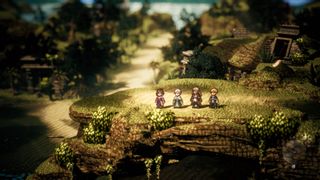
Do you have a preferred starting character?
Miyauchi: When it comes to my favorite... it's not easy to decide because all the main characters are my favorites, but I might choose Castti the Apothecary because I personally like supporting characters. But in the end, I guess it depends on whatever I feel like that day (laughs).
Music is obviously an integral part of any game, but what do you feel best defines the music of Octopath Traveler 2? What sets it apart from its contemporaries?
Yasunori Nishiki, Composer: The concept behind Octopath Traveler series is to "update a good old-fashioned RPG with modern technology," so naturally the music also took this route. I think what's great about good old-fashioned RPG music is simply that they have such memorable melodies.
Updating music is not something that can be accomplished simply by making the sound more extravagant. Making the sound too extravagant may result in the melody becoming difficult to understand, or overcomplicate the music.
We've taken great care to make the music in Octopath Traveler series extravagant while maintaining the quality of the melody as much as possible (of course, we had to work very hard to compose these melodies in the first place (laughs).
The resulting compositions may have some overlap with music from other games in terms of where we ultimately aimed to land, but I think we can say that the approach we took with Octopath Traveler series is different from other games as it was conceived through the process described above.
Octopath Traveler 2 is currently available for the Nintendo Switch, PlayStation 4, PlayStation 5, and PC. Whether it ultimately becomes considered one of the best JRPGs remains to be seen, however.

Rollin is the US Managing Editor at 12DOVE. With over 16 years of online journalism experience, Rollin has helped provide coverage of gaming and entertainment for brands like IGN, Inverse, ComicBook.com, and more. While he has approximate knowledge of many things, his work often has a focus on RPGs and animation in addition to franchises like Pokemon and Dragon Age. In his spare time, Rollin likes to import Valkyria Chronicles merch and watch anime.
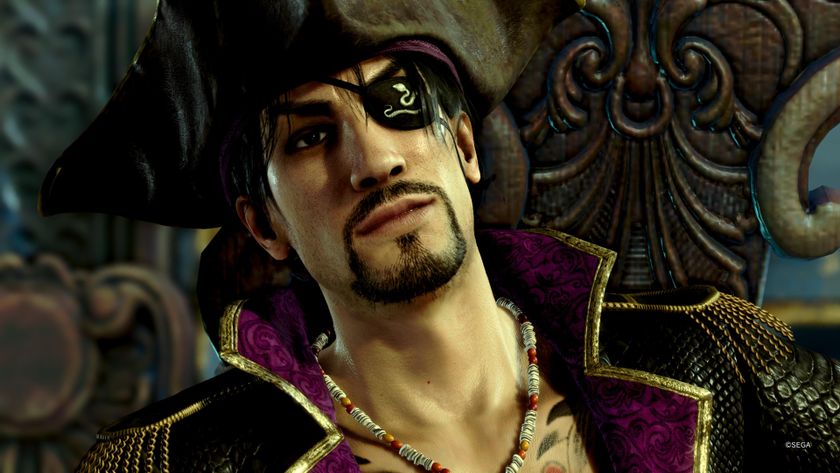
10 years after Yakuza 0, Majima's swashbuckling return finally puts a bowline knot on decades of character growth
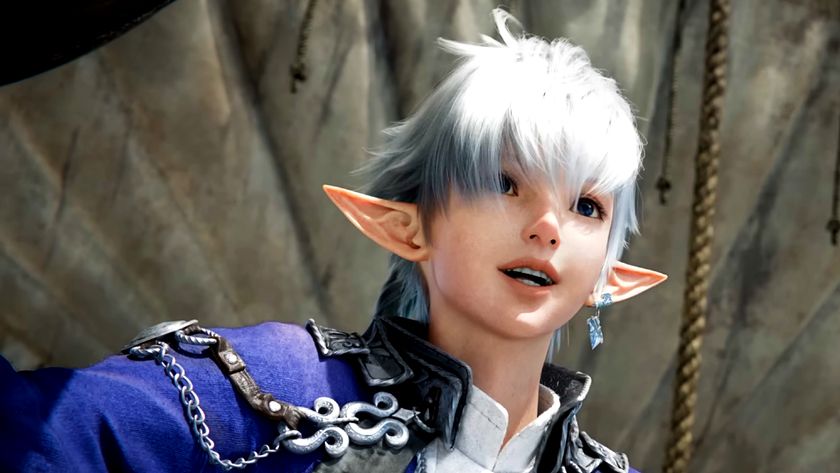
Final Fantasy 14's funniest speedrunning beef continues as runner who lost a world record to its original champ in just 1 day returns, beats record, is promptly dethroned again
Most Popular




